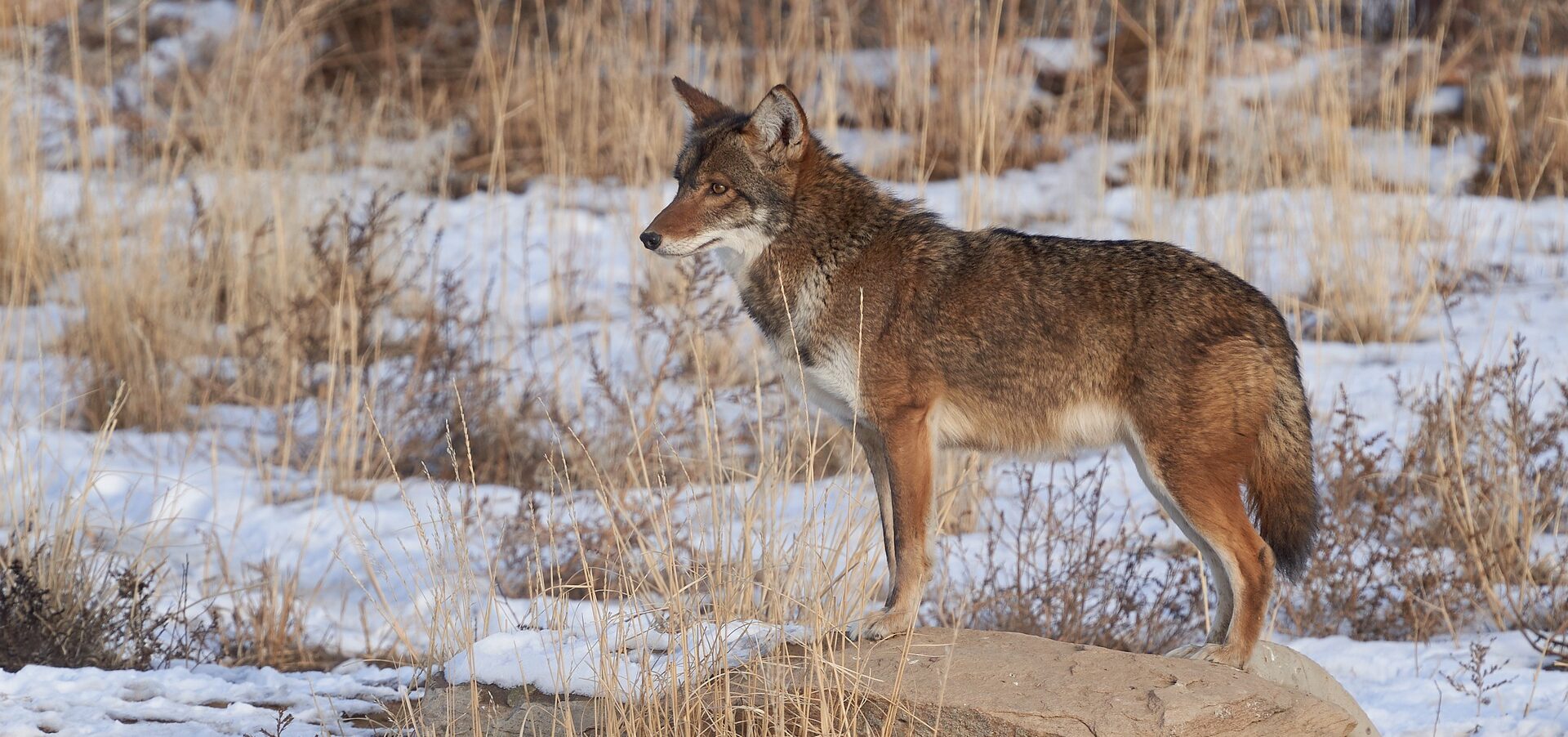February 16, 2021

All of us at Animal Protection Voters extend our heartfelt wishes that every New Mexican—including their animals—is staying warm and safe amidst the winter weather that has struck our region over the past few days. Despite the storms, the work of the New Mexico State Legislature has powered forward, and multiple bills impacting animals have received consequential votes.
This morning, the House Energy, Environment & Natural Resources Committee met and heard two constitutional amendments: House Joint Resolution (HJR) 5 and House Joint Resolution 8, so-called “right to hunt” measures that both sought to enshrine the preference for lethal wildlife management and the “right” to kill wildlife with cruel or unethical methods.
Currently, New Mexico manages wildlife using a variety of approaches, including humane relocation and other nonlethal management techniques. Our state has set restrictions including licensing and education requirements, seasons, kill limits, prohibitions on various wasteful or inhumane practices (like coyote killing contests, which were outlawed in 2019), and penalties to deal with violations of law or rule. Would these current restrictions be upended by a “right to hunt?” Would these “right to hunt” amendments breach New Mexicans’ constitutionally protected access to our state’s streams and other bodies of water? Wildlife advocates, hunters, and anglers alike testified that the answer to these questions is “yes,” that taking wildlife is not a “right” but rather a privilege that should be regulated, and that the Committee should reject the measures.
Curiously, HJR 5 sponsor, Rep. Alonzo Baldonado (R-Los Lunas), argued that these constitutional amendments wouldn’t actually undermine any laws regulating the killing of wildlife, because even constitutional rights can be regulated. But at the same time, he did admit his intent was to undermine and prevent the passage of a future law: Senate Bill 32, “Roxy’s Law” to restrict traps, snares, and poisons on public lands.
In the end—like Arizona voters did to a similar measure in our neighboring state—the Committee did reject both HJR 5 and HJR 8, by a vote of 6-4.
Later this evening, the House of Representatives met on the floor and debated House Bill 51 (Environmental Database Act), which will provide a publicly searchable, map-based, centralized collection of data already being collected by state agencies that deal with resource issues, including important wildlife and habitat data. This straightforward bill is a positive step for public access to useful data. The bill passed by a 44-25 vote, and it will now cross over to the Senate.
Finally, in case you missed it, the Santa Fe New Mexican published an “egg-cellent” article covering the introduction of Senate Bill 374, filled with humorous chicken-related puns but giving serious consideration nonetheless to this common-ground legislation. If you support Senate Bill 374, to transition New Mexico to selling and raising eggs only from cage-free hens, this is a great opportunity to submit a letter to the editor in support of the bill. Please reach out to us if you’d like some talking points and tips to work from.
We are almost to the halfway point of this year’s 60-day legislative session. To stay informed and engaged, please join us at APNM’s next “Virtual Town Hall” at 4:00 PM on Thursday February 25th. Register here today!
Thank you for staying with us and fighting for animal protection in all the ways you do.
With deep gratitude,
Jessica Johnson
Chief Government Affairs Officer
